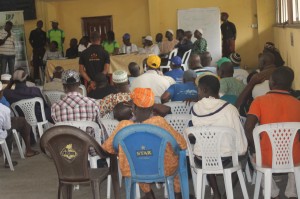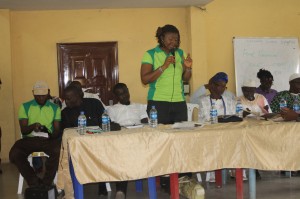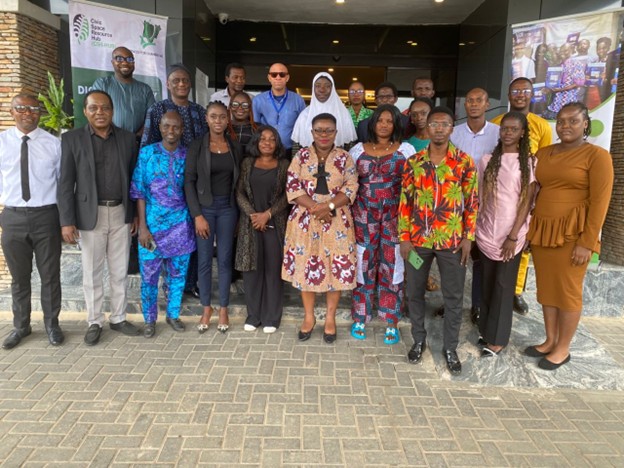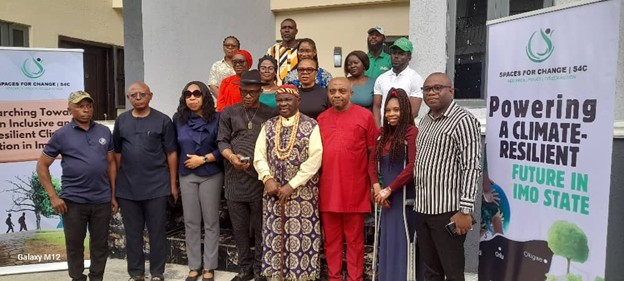On Friday, August 14, 2015, Spaces for Change.S4C convened a public hearing to flag off the Ifesowapo Youth Initiative which aims to galvanize local youth, women and communities to play a greater role in fostering peace and security in slums and informal neighbourhoods in Lagos Mainland Area of Lagos State. Several communities in the Lagos Mainland area are affected by the new wave of “cult violence and gang battles.” Bariga, Somolu, Mushin, Ebute-Meta, Fadeyi, Ijora-Badia have gained notoriety for this sort of disturbances. When rival gangs clash, hoodlums seize the opportunity to raid these neighbourhoods predominantly inhabited by poor urban dwellers. The recurrent violent attacks force frequent school closures. When violence breaks out, market women and petty traders are also forced to close their shops and business premises, leading to significant income losses. Inhabitants live in continual fear of either being robbed, killed, kidnapped and stripped of their possessions. The Lagos Mainland Local Government Authority and the Nigerian Police Force have done very little to rein in these attacks.
To help us understand the drivers of violence in these communities, the public hearing brought together 99 persons comprising community residents, the direct victims of the attacks and their family members, leaders and representatives of the Nigerian Police Force, sawmillers’ association, Okada and Keke riders association, market men and women groups, transport unions, school proprietors, ethnic groups, vigilante group of Nigeria (VGN), traditional rulers’ and traditional worshipers, hoteliers, CDAs and CDCs and local youth organizations. Of the 99 attendees, 22 persons testified, each detailing their disparate perspectives on the causes, suggesting steps that may be be taken to end the violence. Of the 22 speakers, 3 were women, 5 were representatives of different youth organizations in the communities that make up the Lagos Mainland Area. Other stakeholders represented include Police Community Relations Committee, royal fathers, transport workers union and the traditional vigilante. Community members poured out their hearts on the state of security in Ebutte Meta and environs and decried the usual absence of elected government representatives at such meetings.
Among the several drivers of violence and social vices identified, youth unemployment and poor policing stand out as the dominant push factors responsible for the prevalence of criminal activities in the area. One major finding from the testimonies is that local people have more confidence in local security structures – such as the vigilante group – than in the police authorities, impelling the need for the Nigerian government to rethink its stance on community policing. Many of the speakers lauded the efforts of the Vigilante Group of Nigeria and wanted their capacities to be strengthened. They also expressed their desire for improved policing and rapid response to security emergencies. In this regard, they specifically called on the government to complement the current efforts by the Rotary Club to refurbish the police station in Ebutte Metta. The police community relations spokesperson on the other hand said that community members do not own up to reporting crimes and criminals, thus making it impossible for them to prosecute. He encouraged parents and everyone who knows these erring youth to appeal to them one-on-one. To show their commitment and their longing for lasting peace, the youth expressed their intent to march peacefully to the Lagos State government secretariat in Alausa, Ikeja, to draw the attention of their elected ward representatives to the security situation in Lagos Mainland. The vigilante group chairman, Mr. Olusegun Awe, asked for more (moral and financial) support from the community and the police to help them function more effectively. Traditional worshippers wanted to be given the opportunity to “handle” the boys using traditional means (such as charms), promising it would take them lesser time and resources to fish out the bad elements in their communities. The women demanded a quick resolution of the crises as violence disproportionately affects them. They narrated several instances where they were attacked at their places of business. The women leader under the auspices of the Rural Urban Development Initiative (RUDI) called on the women and mothers to cooperate with the police in fishing out the culprits of these attacks. She also urged mothers to take responsibility for the bad behaviour of their children. They can keep their kids and wards away from crime by sending them to school; disciplining wayward children and following up on their social engagements. The Baale of Ijero community chaired the session where the Ifesowapo peace and security committee was constituted and a symbolic peace pact signed by different community leaders and the representatives of various interest groups. Market women, okada riders, artisans, youth groups and all stakeholders present thanked S4C for providing a no-holds-barred platform for local residents to ventilate their grievances, and work together to restore peace to the area. 





